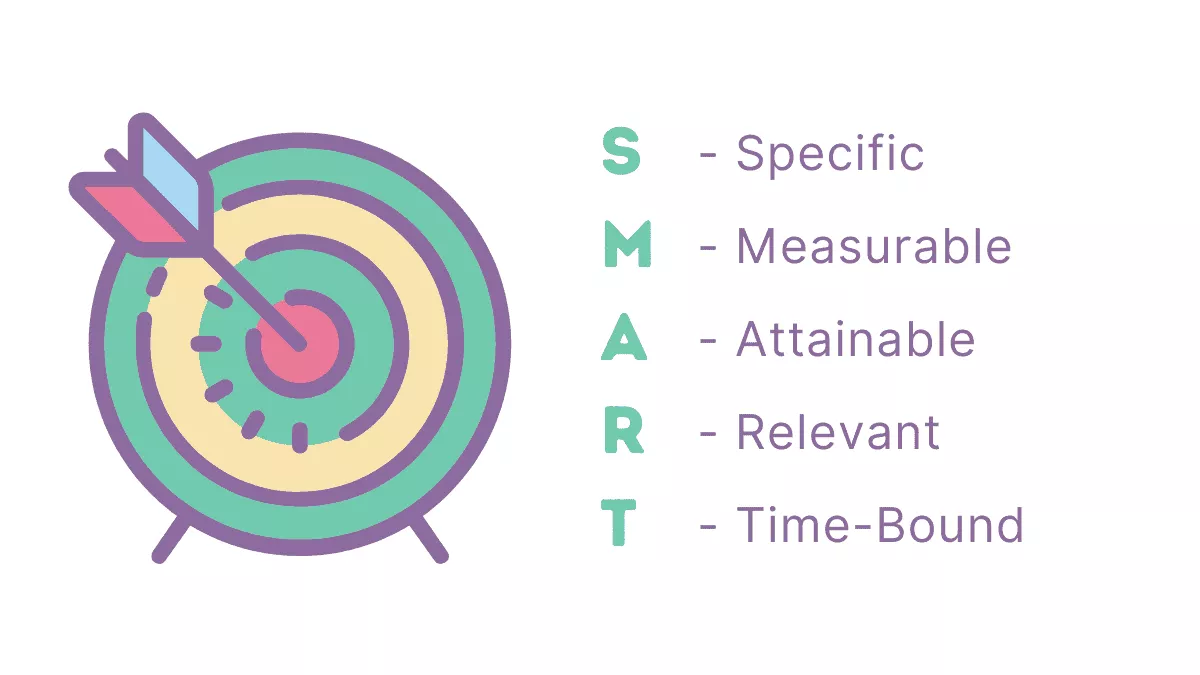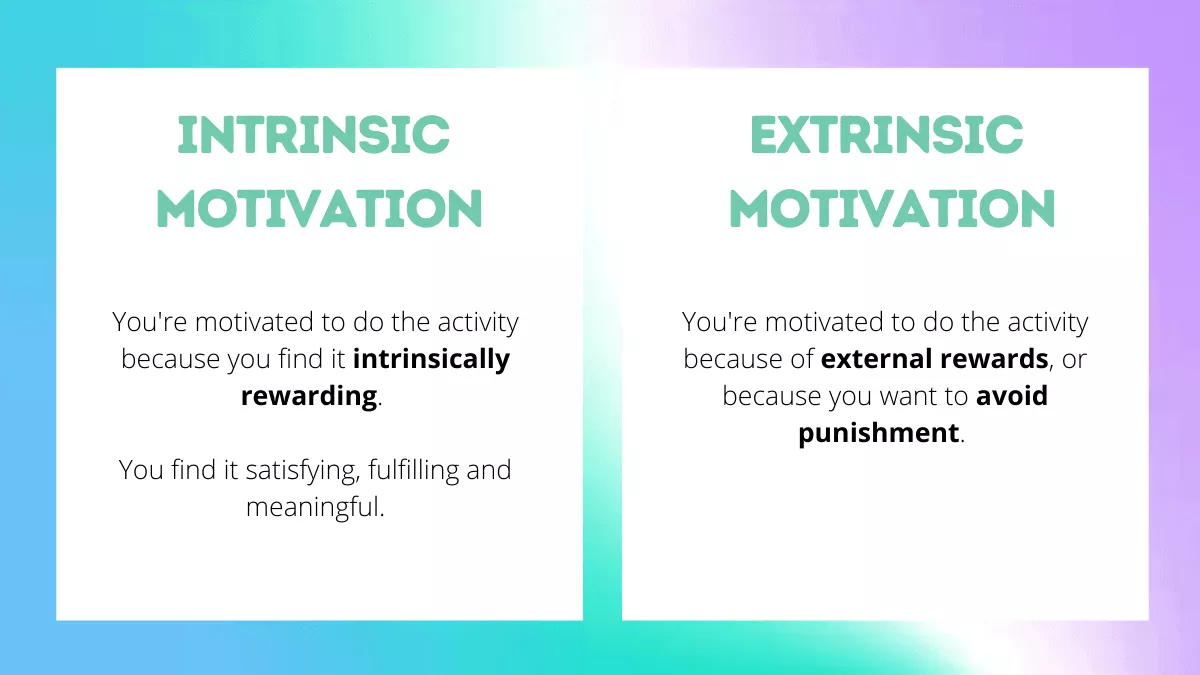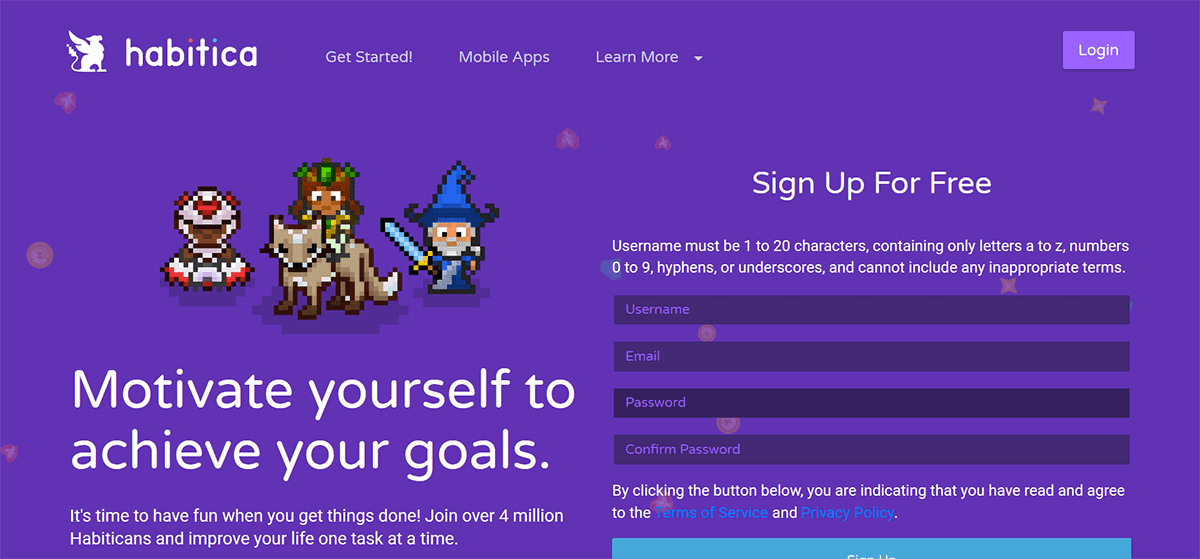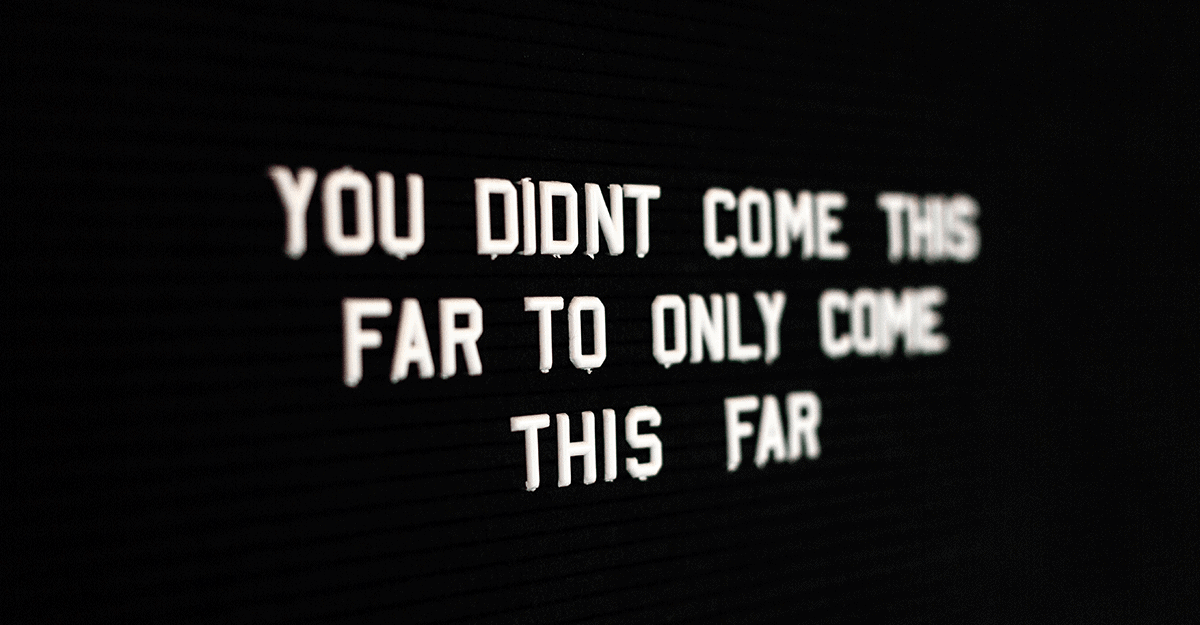It’s just one of those days.
You’re slumped in your seat, staring at your computer screen. Nothing’s coming to mind, no matter how hard you’re willing your brain to just work.
Don’t be too hard on yourself – everybody (yes, everybody, from Bill Gates to that star employee in your office) has bad days like these, where motivation feels like a fleeting memory of the past.
How To Get Motivated
How To Maintain Your Motivated State
Wrapping Up
The good news? If you’re here, you’re already one tiny step towards a more motivated frame of mind.
In this article, I’ll be outlining some of the ways you can pull yourself out of a slump, maintain a healthier drive, and maybe even go beyond that!
Maybe you’re pulling yourself out of a slump. Maybe you just can’t stop procrastinating. Either way – breaking the cycle and taking those first few steps towards ‘motivation’ can often be the most difficult part of the process.
Don’t worry! More often than not, demotivation isn’t the unmovable mountain that it might appear to be. A little bit of strategy can go a long way, as I’ll show you.
We all know that when it comes to goal-setting, SMART goals are the way to go.

They may sound cliche, but a SMART goal really is powerful. Why?
The long and short of it is because it eliminates lots of causes for demotivation. If your goal is too unclear, general, or unattainable, chances are you won’t be able to muster up the enthusiasm to stick to it.
Here’s a quick example.
A goal that’s simply to ‘be productive’ is very difficult to visualize.
However, with the SMART goal guide, we can identify the specifics of the goal, which makes it much easier to tackle. A SMART version of this goal could be: ‘By the end of this working day, I want to complete a report and draw up a rough outline of an event proposal. I’ll put on some relaxing ambience in the background to help me focus better.’
If you’d like to dive into more details on how to set SMART goals, here’s a useful video by Khan Academy:
Sometimes, setting a specific goal just isn’t enough to get the ball rolling. This is where rewarding yourself comes in.
In this section, we’ll be touching on two kinds of rewards: intrinsic and extrinsic.

Most of us would be familiar with extrinsic rewards. This is when we reward ourselves with something desirable after we’ve completed a goal. It can be as big or small as you like. For instance, freelancers might just treat themselves to a smoke or coffee break after they’ve completed a specific task.
Extrinsic rewards are generally useful for goals that you find unpleasant, such as filing tedious paperwork or ditching an addictive habit.
On the other hand, intrinsically motivating rewards are the parts of your goal that you find to be enjoyable in and of themselves.
For instance, as a writer, I personally really enjoy the process of stringing together beautifully written sentences – so that in itself is an intrinsic reward for me.
Any part of your goal that you enjoy could be a reward on its own.
Customer-facing employees who enjoy meeting new potential clients can use that as a reward for being productive, whereas dog lovers could use walking their dogs as a reward for driving up their step count and keeping fit.
Reflect on your goal and pick out the best kind of reward for it, or use a combination of both.
One last thing to remember is that when it comes to sparking motivation, it’s the little things that count. That means that even with a SMART goal and awesome rewards lined up, you still might not necessarily feel that motivated.
This is when you start breaking your goal down to itty bitty pieces.
Yes, we’re talking actually minuscule, and almost seemingly inefficient, actions.
For instance:
While these might all seem like small and almost inconsequential steps, they all serve a greater purpose – which is to prime you to be more motivated later on. When you’re in an unmotivated state, it’s easy for a goal, no matter how attainable, to feel out of reach. Breaking your aim into tinier chunks often makes it much easier to start.
Another little tip would be to throw a timer into the mix. A simple 2 – 5 minutes of working on a task can often slowly get you into the flow of things.
Remember, getting out of a slump takes time. Little steps like these, alongside setting proper goals and rewarding yourself, all go a long way towards helping you find your motivation again.
Now that you’ve stoked the fire, it’s time to fuel it even further!

Accountability partners are exactly as the name suggests – they help to keep you accountable throughout your goal-achieving journey.
With a strong support system or even just a group of people with similar goals to you, you’ll find it easier to stay on track and even bounce motivation off each other.
For this, you could call up close friends, family members, or even colleagues that you think might want to achieve similar goals. Signing up for relevant courses, or events in your area can also be a great way to meet other like-minded folks.
Another way of finding accountability partners would be through the good ol’ internet. From online forums to specialized websites, there are almost endless resources for you to tap into.
A few examples would be Focusmate, which matches you with a buddy for a period during which you would like to stay focused; StickK, which uses behavioral science-based data to keep you accountable to your goals; and Habitica, a website and mobile app that helps you ‘gamify’ your goals. In fact, we’ve written a whole piece about how gamifying your life can trick your brain into being productive.
Did you know that your physiology also plays a part in helping to maintain your motivation?

It’s true! In fact, there is a whole branch of psychology dedicated to studying motivation, and what drives us to change our surroundings or ourselves.
In an article by Positive Psychology, one theory in particular states that your physiology affects your behavior – and ultimately your drive.
Think about what your body normally does when you’re motivated.
Generally, you’d be sitting straight, shoulders thrown back, and you might even lean slightly forward out of your chair. Support your motivation by imitating your physiology as you would be when you’re feeling enthusiastic.
If you’d like to take it a step further, you can even throw your arms out, jump a few times, or perform any action that gives you that burst of positivity. This way, you can literally shake yourself into a motivated state.
Alright, full confession – motivation tends to ebb every so often.
Think of motivation like a spring; when it rains, it can come flooding. But when it’s the dry season, morale can dry up.
During the times when motivation is less forthcoming, it’s important to remember this and not beat yourself up over it. Then, just power through it. Do what you need to to get through the day or the few hours you’ve allocated to achieving the goal.
If you aim to streamline your working process, try chatting with a colleague/accountability partner to see how they do their work. If you’re looking to plow through work emails, sit a little straighter, and put on a timer and some of your favorite music. Then, reward yourself with a coffee break or a bite of that cheesecake you bought during lunch. Be kind, but firm with yourself.
Motivation can be a flighty master. On days like these, just hang on to things that have worked for you the past and power through to the other side.

What if I told you that there’s a way to ensure that you’ll never need to muster motivation for a goal ever again?
It comes down to us humans being habitual creatures. And just as procrastination can become a habit, the opposite can also be true.
If you manage to keep at your goal day-in and day-out, you might find that you’ve unknowingly started incorporating it into your life as a habit. In other words, it’s now a driving force in your daily life. And it’s through repeated actions, where big transformations can happen. This could apply to anything – from adopting daily workout sessions, to gradually becoming a morning person.
Before you know it, you’ll have conquered your goal and beyond, and can reach for a fresh new target.
Life is too short to let little spurts of demotivation sway you from achieving your dreams.
Well, what are you waiting for? Start up your phone timers and begin working on your goals!
Pixie is a freelance writer who's spent more of her life writing than not. With experience in managing private blog networks, she's written for a range of industries like travel and entertainment. Connect on LinkedIn.